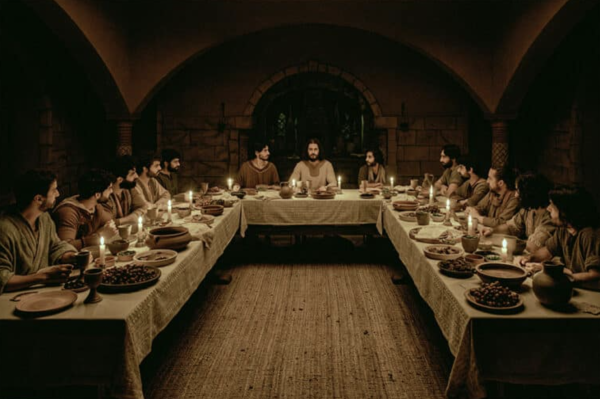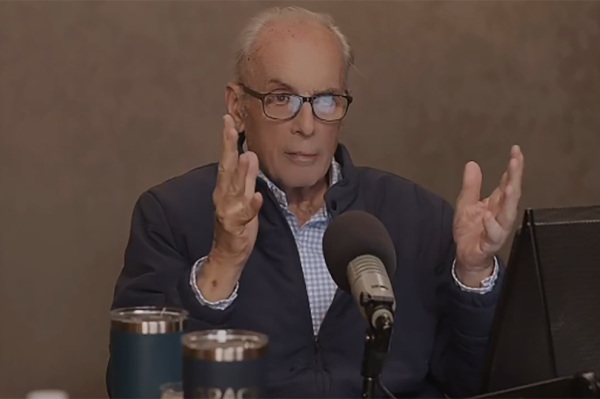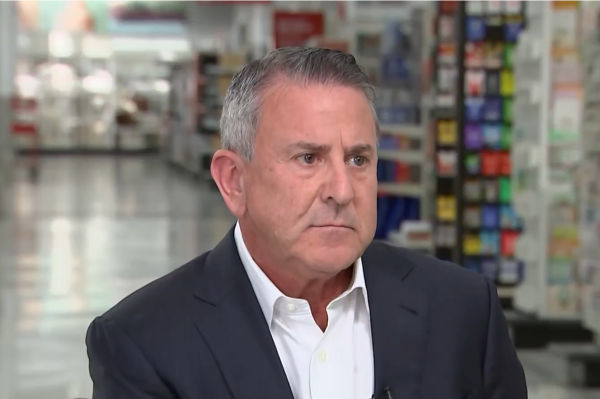Interview: Robert Jeffress Refuses to Back Down on 'Mormonism Is a Cult'
Dr. Robert Jeffress, the pastor of First Baptist Church in Dallas, Texas, is not backing down from his controversial statement that Mormonism is a “cult.” In a phone interview Tuesday with The Christian Post from his office in Dallas, Jeffress clarified and expanded on his theological examination of Mormonism and what qualities are important for Christians to consider when selecting candidates for elected office.
Jeffress came under intense fire since last Friday for saying Mormonism is a theological “cult” while talking to reporters at the Values Voter Summit that attracted all the major Republican presidential candidates and over 3,000 conservative voters. He told reporters that while he thought former Massachusetts Gov. Mitt Romney was a good and moral family man, he is not a born-again follower of Jesus Christ and that Texas Governor Rick Perry, who is a professed Christian, would be a better GOP nominee.
The following are excerpts from the interview:
CP: From a theological standpoint, why is it difficult for the secular world to understand the term “cult?”
Jeffress: People have said to me that if I had not used the term “cult,” then none of this would have happened. That’s not true. What is really most offensive to people is the idea that not everyone is going to heaven – that not all belief systems lead to God. What this real debate is over is the exclusivity of the Gospel of Jesus Christ.
CP: In your opinion, are some people losing sight of the fact that other religions may not worship the same God or know Jesus Christ as the Son of God and that Jesus Christ is the only way to Heaven?
Jeffress: Absolutely, and that is why this debate is so insidious about all of this. We sometimes use the same terminology but it has vastly different meanings and I just really encourage people now that they know Mormonism is a theological cult, to go ahead and do the research on their own.
After my appearance the other night on Anderson Cooper’s show on CNN, I had a lady called me from Virginia to tell me that she grew up in the Mormon church and that everything I said was absolutely true, that Mormonism is a cult and not to back down and keep telling the truth and that’s what I am doing.
CP: When looking back, after all the controversy that the term “cult” has generated, if you had it to do over again, would you still use the word “cult” to describe Mormonism?
Jeffress: First of all, my use of that term was not in introducing Rick Perry. When I introduced the governor I never used the word “cult,” Mormonism, nor did I mention Mitt Romney. This occurred afterward when a reporter asked me the question, “What’s the problem with Mormonism?” That’s when I went into an explanation and said Mormonism is a cult and I went on to explain what I meant by the term; that it is a theological cult and what that means. Of course, that never made it on the news. So, I stand by every word I said and I wouldn’t change a thing.
CP: Let’s assume Gov. Romney won the Republican nomination. I heard you say in another interview that you would support him if he and President Obama were running against each other.
Jeffress: Well, I said I would probably vote for Mitt Romney over Barack Obama because I believe that while a candidate’s faith is one consideration, it’s not the only consideration. Quite frankly, I would prefer to have a non-Christian like Mitt Romney who at least pretends to embrace biblical principles over a professing Christian like Barack Obama who embraces very unbiblical positions on abortion.
CP: Assuming Mitt Romney who is a professing Mormon was to be elected president, what would be the biggest danger to the Christian community if he endorsed pro-life and traditional family issues?
Jeffress: Somebody stopped me in the hallway of the hotel in Washington where we were staying and said, “My problem with Mitt Romney is not that he’s a Mormon, it’s that he is not good enough of a Mormon.” My own problem with Mitt Romney is given his past views on abortion (Romney previously stated he was in favor of abortion when he was Governor of Massachusetts, before later changing his position. He is now pro-life) this tends to indicate he may not be a very devout Mormon so I’m not worried that much about a member of a so-called theological cult being a leader of our country, other than the fact I think it’s preferable to have a competent Christian over a competent non-Christian.
CP: Dr. Jeffress, if one of your church members stopped you in the hallway and asked you what qualities you felt were most important to consider when voting for the President of the United States, how would you respond?
Jeffress: Actually, I talk about this at length in my new book Twilight’s Last Gleaming: How America's Last Days Can Be Your Best Days that will be released in January, and I talk about what criteria Christians should use when evaluating a candidate. Is the candidate a Christian? Do they integrate their faith with their practices? What are their views of the constitution? What about their moral character? I think all of these are considerations when electing any candidate.”
CP: Do you see the qualities in a candidate you just mentioned being a major factor in the next presidential election?
Jeffress: I actually do. I think there is a reason that both elite Republicans like Karl Rove and others in the Republican establishment and those in the liberal establishment are both using my comments to try and discredit Rick Perry. They want Mitt Romney as the nominee but for very different reasons. Republicans like Karl Rove really believe that Romney is more electable that Perry in a general election. Democrats want Romney as the nominee because they think he’s going to be a weak candidate against President Obama.
I fully believe that if Mitt Romney is the nominee, that the liberal media will unleash – like they have already done a few months ago – I believe they will go after Romney based on his Mormon faith. I think they will talk about the relationship of Mormonism and racism and its past treatment of blacks and so forth. They are waiting for Mitt Romney to become the nominee before they unleash those attacks. You won’t see President Obama doing this; the media will do it for him.
CP: The issues we’ve discussed, such as the differences between sociological and theological cults, are rather deep issues that are sometimes challenging for Christians to understand. Of all the interviews you have done, what is it that you believe people need to understand and what would you like to communicate that would best summarize the issue?
Jeffress: What I would like to say and have said is that a person’s faith does matter. I would also like to say that a person’s religion having no part in which candidate we vote for is ridiculous. Our faith is the very essence of who we are. And it’s certainly a factor in choosing a candidate.
This is where I may disagree with other prominent theologians who seem to think that a person’s faith should not be criteria for selection. It was John Jay, the first Chief Justice of the United States Supreme Court, and I quote, “We have the duty and privilege in this Christian nation to select Christians as our rulers.” A candidate’s faith in not the only consideration, but should be a major consideration in electing the President of the United States.






















